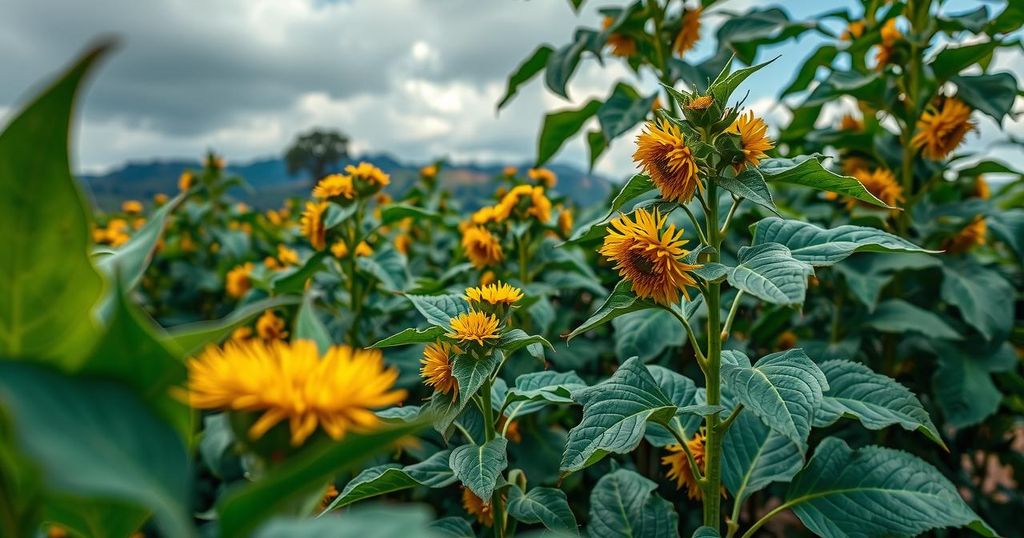The COP29 conference will focus on utilizing AI and biotechnology to enhance agricultural resilience and food security amidst climate change. It is critical for African governments to advocate for equitable access to these technologies, ensuring they benefit vulnerable communities rather than large corporations. Advances in AI enable better data analysis for farming practices, while conservation of germplasm is essential for developing climate-adaptive crops. Promoting these initiatives responsibly is key to achieving sustainable food systems.
The annual global climate change conference, COP29, scheduled for November, will prominently address pressing issues related to land use and sustainable food practices as the world grapples with climate change. Discussions will revolve around harnessing emerging technologies, such as artificial intelligence (AI), to enhance agricultural resilience and food production while mitigating environmental impact. As a plant biotechnologist actively engaged in identifying and increasing the propagation of climate-resilient plant species, I emphasize the necessity of preserving important genetic traits in plants, particularly endangered trees and indigenous African vegetables. The conservation of germplasm is vital for developing climate-adaptive crops. Techniques such as cryopreservation and tissue culture are employed to safeguard these genetic materials. Our research has led to innovative strategies aimed at increasing agricultural yields despite diminishing resources, including breeding programs for more resilient crops. AI serves as a pivotal tool that empowers us to tackle complex agricultural challenges. By analyzing extensive data on soil and climatic conditions, AI facilitates the identification of genetic traits that bolster crop resilience against climate-related stressors. Furthermore, it enhances operational efficiency through automation and real-time decision-making. Ethically deploying AI in agriculture represents a significant opportunity to advance food security amidst the challenges posed by climate change. Moreover, recent breakthroughs in understanding protein structures have opened avenues for designing new proteins critical for food production utilizing AI, with significant implications for nutrition and healthcare. However, it is crucial to address the disparities in access to AI technologies globally. Despite the potential benefits for food security in Africa due to its unique context and needs, the continent currently falls behind in investment and innovation in these transformative technologies. Consequently, African governments must advocate at COP29 for equitable access to AI in agriculture, ensuring that these advancements prioritize the needs of vulnerable populations rather than being monopolized by large corporate entities. The call is for a just distribution of resources resulting from improved agricultural practices, underscoring the importance of addressing historical inequities in food systems.
The global struggle to sustainably feed an increasing population in the face of climate change has become a critical topic, particularly at forums such as COP29. Advances in biotechnology and artificial intelligence are pivotal in developing climate-resilient crops and efficient agricultural practices, especially for regions like Africa that are highly vulnerable to climate-related challenges. The article delves into the significance of these technologies, the potential benefits of equitable access, and the necessity for African governments to take a proactive stance in shaping the discourse at COP29. As such, the role of AI and biotechnology in enhancing food security becomes evidently crucial.
In conclusion, the upcoming COP29 provides a vital platform for discussing how to sustainably feed the global population amidst climate challenges. The integration of AI and biotechnology is essential in developing resilient agricultural systems that can withstand environmental stresses. However, it is imperative that African nations advocate for equitable access to these technologies and ensure their application addresses the needs of the most vulnerable populations. By doing so, they can leverage advanced scientific developments to foster food security and protect their natural habitats.
Original Source: theconversation.com






